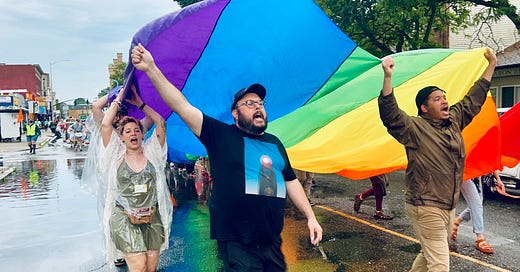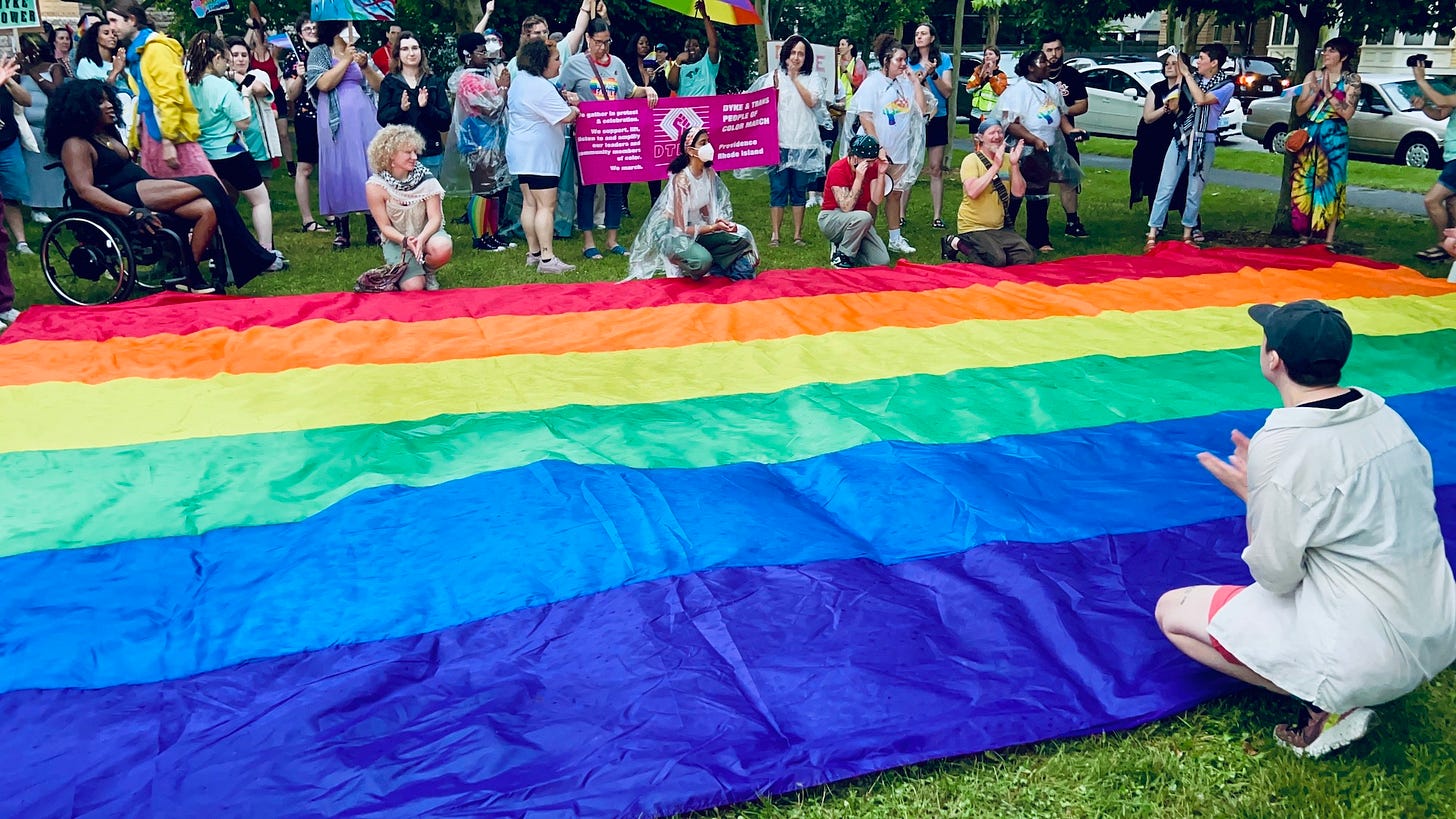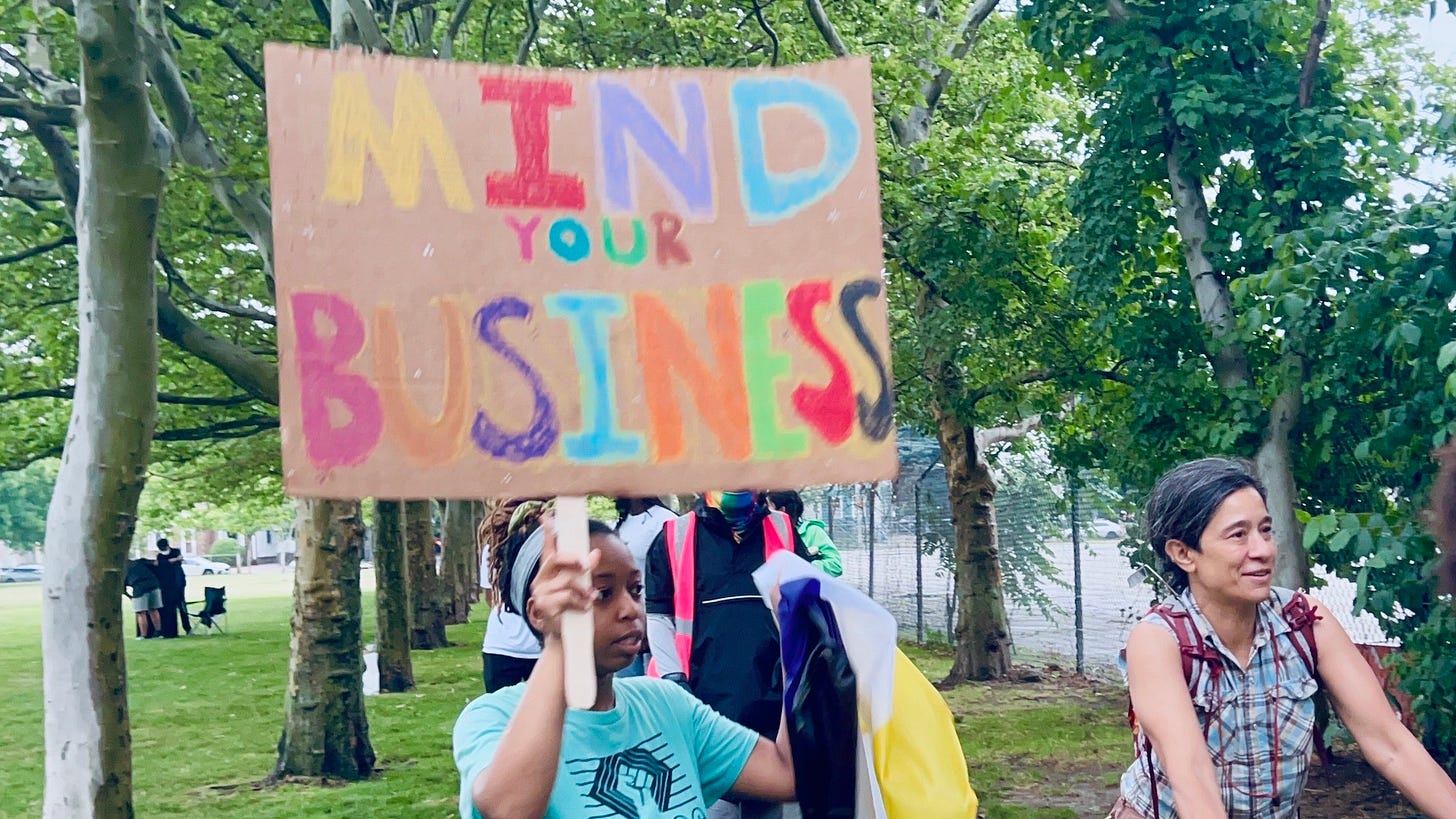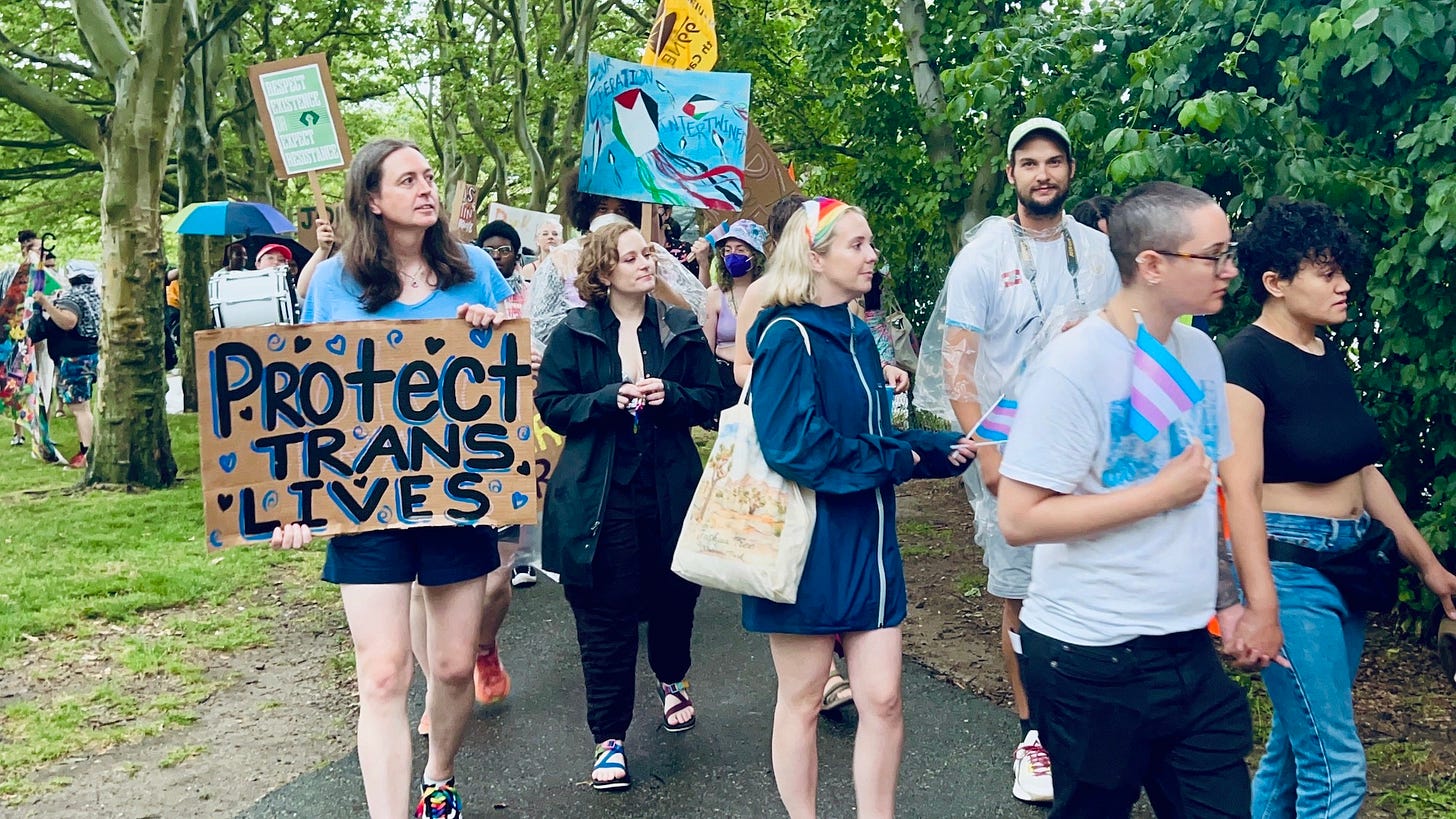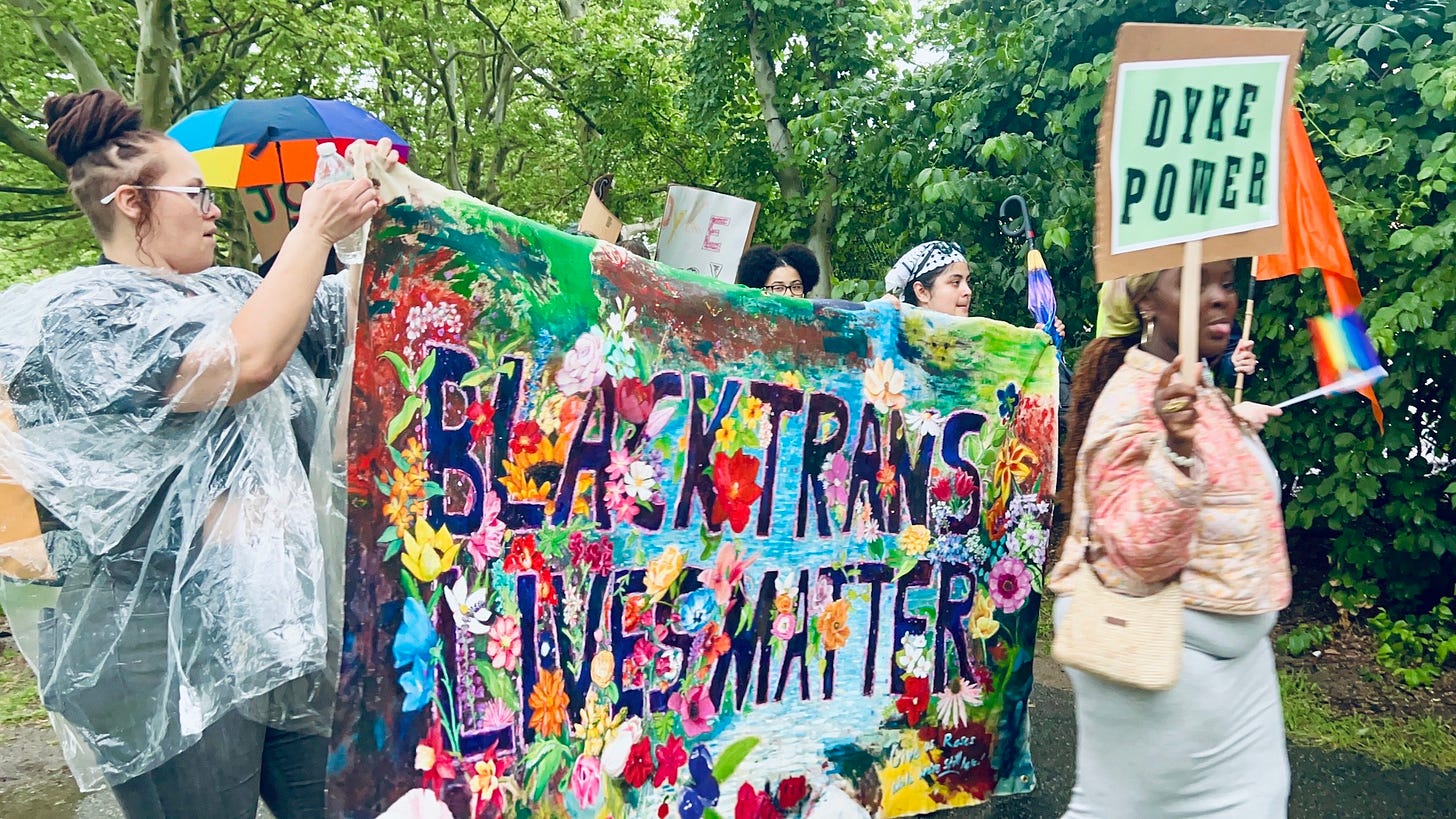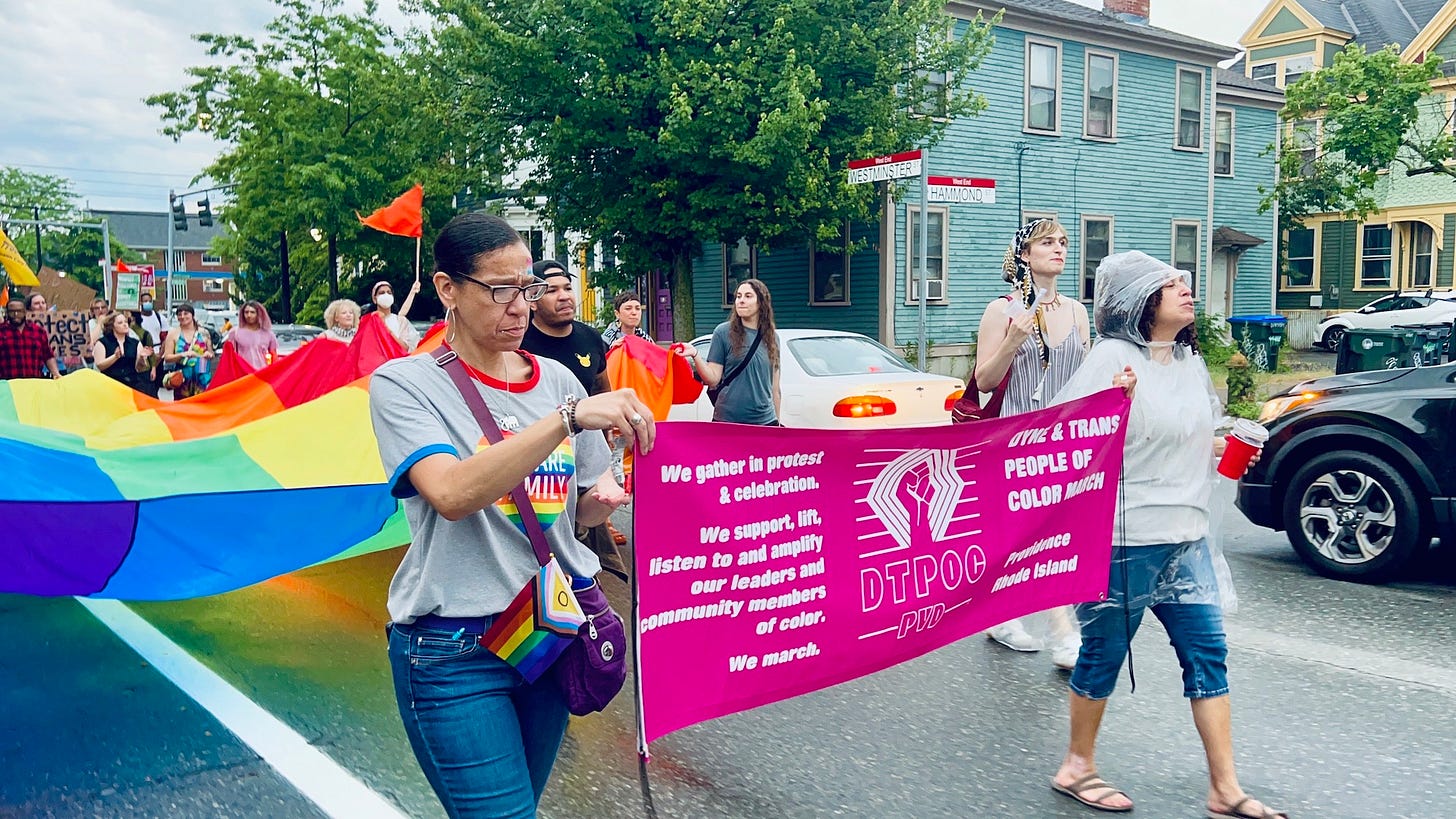Providence's fifth annual Dyke Trans People of Color [DTPOC] March
"...when we see the way Pride is celebrated - traditionally it is capitalist and white supremacist [with] a lot of corporations and companies..."
Providence’s fifth annual Dyke Trans People of Color [DTPOC] March left from Dexter Field on Friday night, winding its way through the streets in a celebration of the lives of queer women, trans, and nonbinary people of color.
You can watch the march and the speaking program here:
Jesus Holguin, who emceed the speaking program before the march, explained the history of the march. “In 2019, a few organizers came together for the first march, centered around dykes and trans and people of color, a celebratory space for our community.
“When we think about traditional pride, a lot of us forget that the first pride was a riot. It wasn't anything that made us feel complacent. In the world that we live in today when we see the way Pride is celebrated - traditionally it is capitalist and white supremacist [with] a lot of corporations and companies pulling out all their colors to be like, ‘We support folks.’ But on a day-to-day outside of this month, what does that support look like, right?”
The three original organizers of the first four DTPOC marches, Ancha Santana, Michelle Veras, and Ayako Takase were on hand to pass the mantle of organization onto SISTA fire and Ditra Edwards, the co-founder and director of that group. In the usual SISTA fire tradition, they pulled together organizational help from a wide variety of social justice groups and activists.
Edwards honored the three founders with small awards and said, “We have an expression at SistaFire. It's called being a fire-starter. Because we believe that when you start a fire, lots of things can happen. You can burn some shit down, you can help some things grow because one fire starts, and then another fire starts, and then another fire starts, right? For us, our flames mean transformation because fire also helps things grow. Fire is critical to our earth when it's controlled and led with guidance and love, understanding why the forest had to burn, to help it continue to grow.
“That's what these three did. We would not be here if it wasn't for them. This is not a bias thing. We picked up the mantle this year to help hold it and we will continue to hold it, but it's a collective community effort. That is what they said to us. It's not about one, it's not about corporation. It's about the community. And that's why they're the fire-starters because they built this.”
The theme of this year’s march was Lineages of Solidarity.
“Queer lineage and our deep histories of finding each other and forging our chosen family [is about] what it means to have our chosen family,” explained Jesus Holguin. “For those who have family who accepts or don't accept them, we make sure that we find the people who are going to love us unconditionally no matter what craziness we bring - or normalness we bring because we don't have to be crazy.
“Lineages in our solidarities and our movements - fighting joint struggles with Black power, Indigenous sovereignty, immigrant power, international movements like those in Palestine, Haiti, Congo, and Sudan [and] to just be grounded in a space where we can talk about what's happening around us and it's not like we're pretending like it's not happening.
“I'm grateful, not just grateful, but honored to be in front of y'all, to have this conversation, to just be in this time of movement. And if you don't know, I know all those struggles are tied to white supremacy. All those struggles are tied to the colonial powers that still affect us to this day, here presently in Providence.
“The last piece around solidarity and the lineage of solidarity is our relationship as queer and trans people with the land and the nature around us, the Indigenous stewards of this land across generations. I appreciate how much I get to see myself in the world. You think about all the things that happened in the world, how did that happen? How did that get here? How do you exist? How are you so beautiful? And then to see those things mirrored in me, and of me thinking about, ‘How did I get here? What were the patterns?’ Now I see the patterns and it's just a beautiful thing to be in solidarity with the earth.”
You can read my coverage of the first three DTPOC Marches here:
Somehow I missed the 4th DTPOC March.

